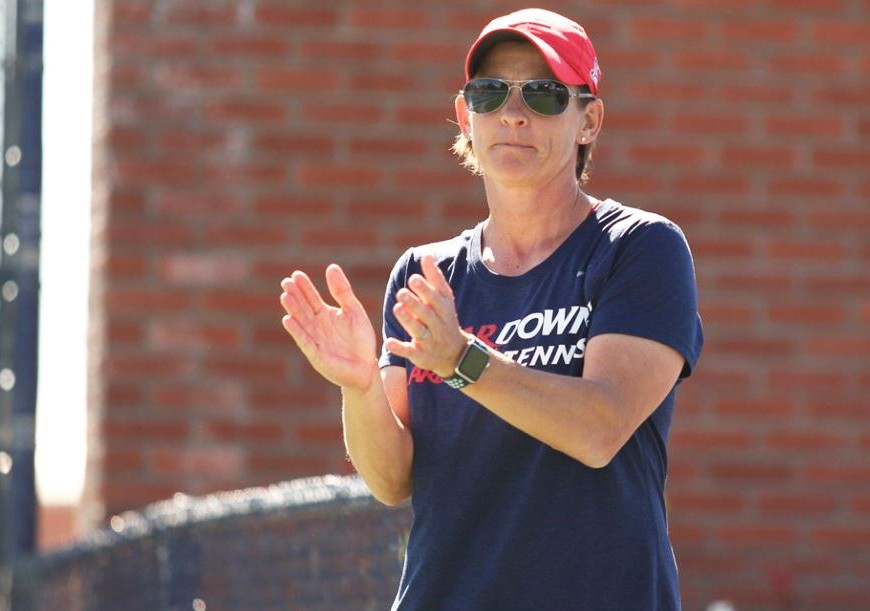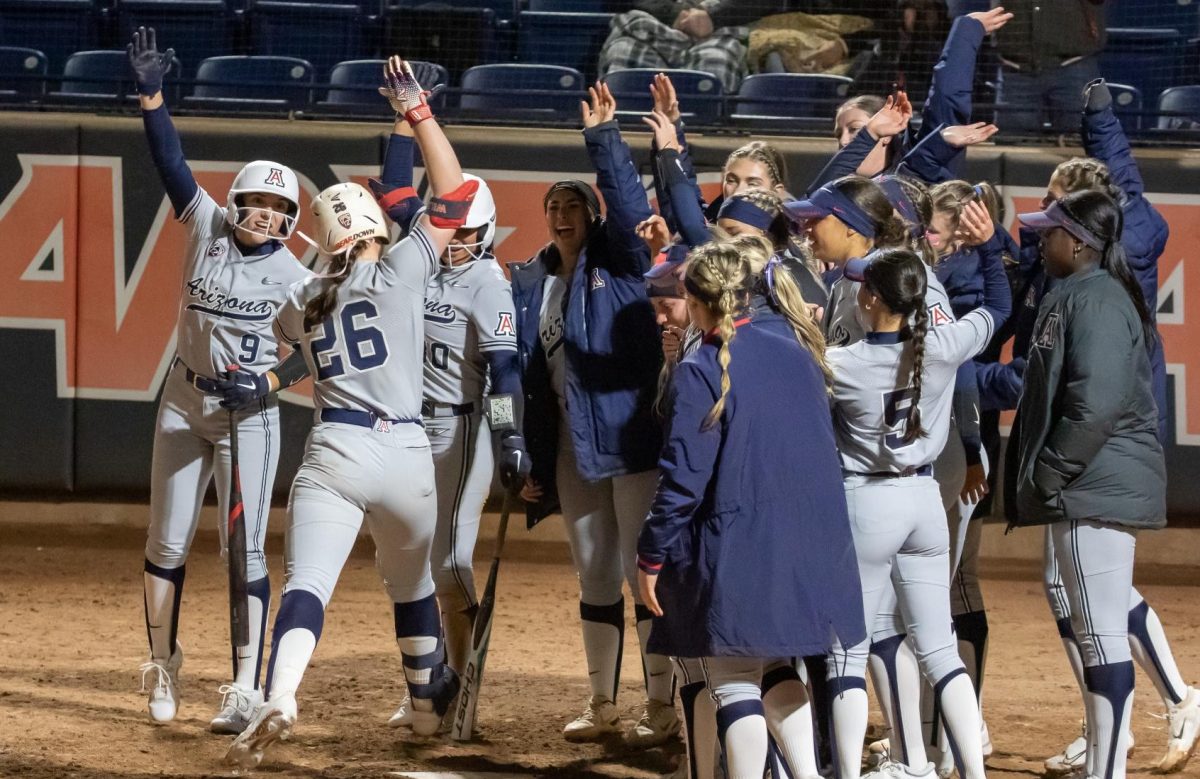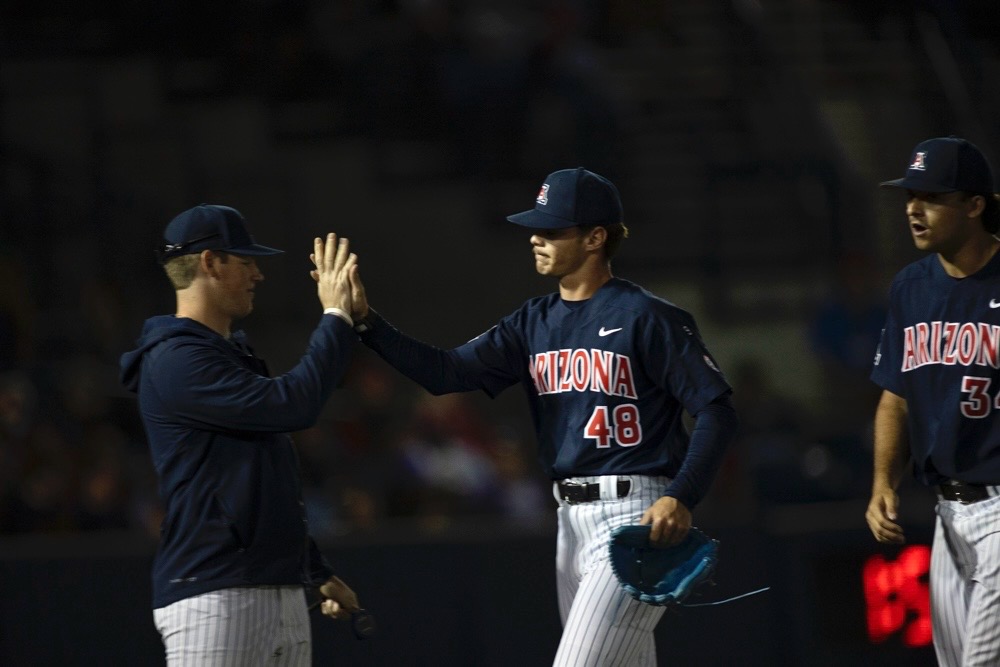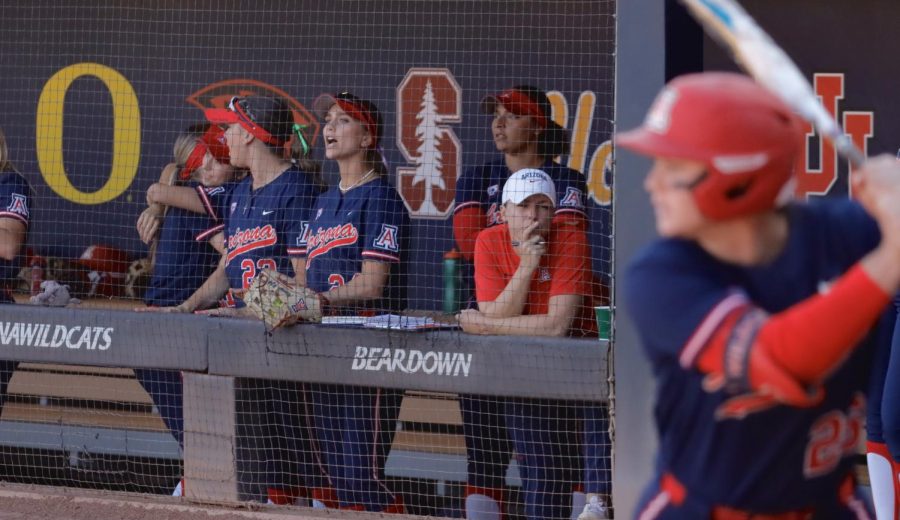Arizona women’s tennis coach Vicky Maes has a spacious corner office in the recently renovated McKale Center, the exact same building where she started as an intern after her decorated playing days nearly two decades ago. Her consistency and competitiveness landed her the keys to the entire women’s tennis program at the age of just 27.
But it was never something she had dreamed of or planned.
“Well, it’s definitely not something that I thought I would do as a career. You know when I played here, I was very, very competitive; that has always sort of been in my nature, but I never looked at tennis from a coaching perspective,” Maes said. “It was always from a playing perspective. So I was a business major here and had every intention of leaving tennis behind once college was over because I knew I didn’t want to go pro because I had hurt myself pretty badly, and I knew that was it for me.”
Maes was named to the Pac-10 All-Decade Team of the 90s and established herself as the most decorated Arizona women’s tennis player of all time during her time on the court.
Even though Maes’ playing days were over due to injury, tennis was something she couldn’t completely let go.
Maes continued to labor in corporate America, with cubicles and work-meeting memos abundant, but she didn’t see herself sticking around for long. The 9-to-5 grind that has taken years off of peoples lives wasn’t something Maes wanted to get invested in. She always made sure she made sacrifices to travel and give back to the program she lead as a player, even when her schedule or budget suggested she shouldn’t.
The moment Maes left the friendly red brick and palm trees, she knew she wanted to come back at any cost. Her actions and commitment set her apart from others.
“I was really looking for a chance to come back to Arizona because I just love this school. It has just given me everything,” Maes said. “It was just a way to give back by volunteering, and ultimately a job opened up in McKale that I took as a foot in the door. I think it was one of those things where you are at the right place at the right time.”
After being named head of the tennis program 17 years ago, Maes and her consistency is what continues to drive and define the Wildcats. As their leader, instructor and role model, Maes is able to pull wisdom from encounters with past players.
In fact, being a past player herself is something that is worth its weight in gold. Being able to draw from that experience when it comes to adaptations and adjustments throughout a tennis season is something the Wildcat women rely on as one of their program’s cornerstones.
But even with the personal experience, the 1996 Pac-10 Player of the Year coaches players that aren’t always going to achieve the heights she did. This took some time to adjust to during her early years at the helm.
“I came into this coaching job wanting every athlete that came through the program to have the same experience as me. The biggest eye-opening thing was that wasn’t going to happen,” Maes said. “Not everybody has that same desire, passion and competitiveness for the game. It doesn’t mean that the kids we recruit aren’t competitive, but I think my situation was unique in that I came from a situation where my parents didn’t have a lot of money, and everything I got for free was like ‘Oh my gosh! I’m going to pay you back in effort’.”
Maes adjusted her approach through the years, and one thing she doesn’t shy away from is adversity. Playing in the toughest tennis conference in the country with perennial powers UCLA, USC and Stanford competing for National Championships every year, Arizona has to be on the top of its game to even be in the conversation when it comes to post-season play.
But the challenge doesn’t faze Maes.
“They have to learn how to play through adversity and play through some difficult circumstances; that’s how they grow as people. And then we can produce a bunch of young women ready to do anything in life,” Maes said. “We’d love to win, and we don’t like to be in the situation that we are in, but we have had to show some toughness, and we are young, and so they have had to step up, and that can only be good for their future.”
As this young Wildcat core pushes on and looks to build on learned lessons from this season, Maes cannot stress enough the lessons that can be learned not just through wins or losses, but through the uncertainty and adversity, which can pop up at any time during a season.
The Wildcats have had to deal with numerous distractions due to player absences, but Maes sees through it all and refuses to let it deter her moving forward.
“For me, it’s all about how we carry ourselves on the court. Do you go out there and act like a winner? Or do you go out there and give in to the circumstances? And yeah, there are going to be moments when kids give in to the circumstances, but sometimes kids do rise to the occasion, and that’s where, as a coach, you just feel so blessed to be around people who take all of that adversity and … to turn it into something positive,” Maes said.
As Maes continues to establish a winning culture around the Robson Center, she understands that it all starts with a mindset that is shared and understood, carried out by not just a few players, but by all. And in a sport like tennis, where players are trained in a singular environment growing up, this can be the toughest lesson to learn of all.
“I just want them to be resilient. I want them to fight. Of course I want to win, but the ultimate way is to leave it all on the court. If you give it your best, you might come out with some surprising wins. If you fold, you can’t be surprised when you lose,” Maes said
While the Wildcats’ season heads into crucial Pac-12 play, Maes will be looking to see if the lessons of consistency she teaches through example have stuck, as Arizona looks to not just push for post-season play, but to grow in its approach to dealing with everything and anything it gets served.









